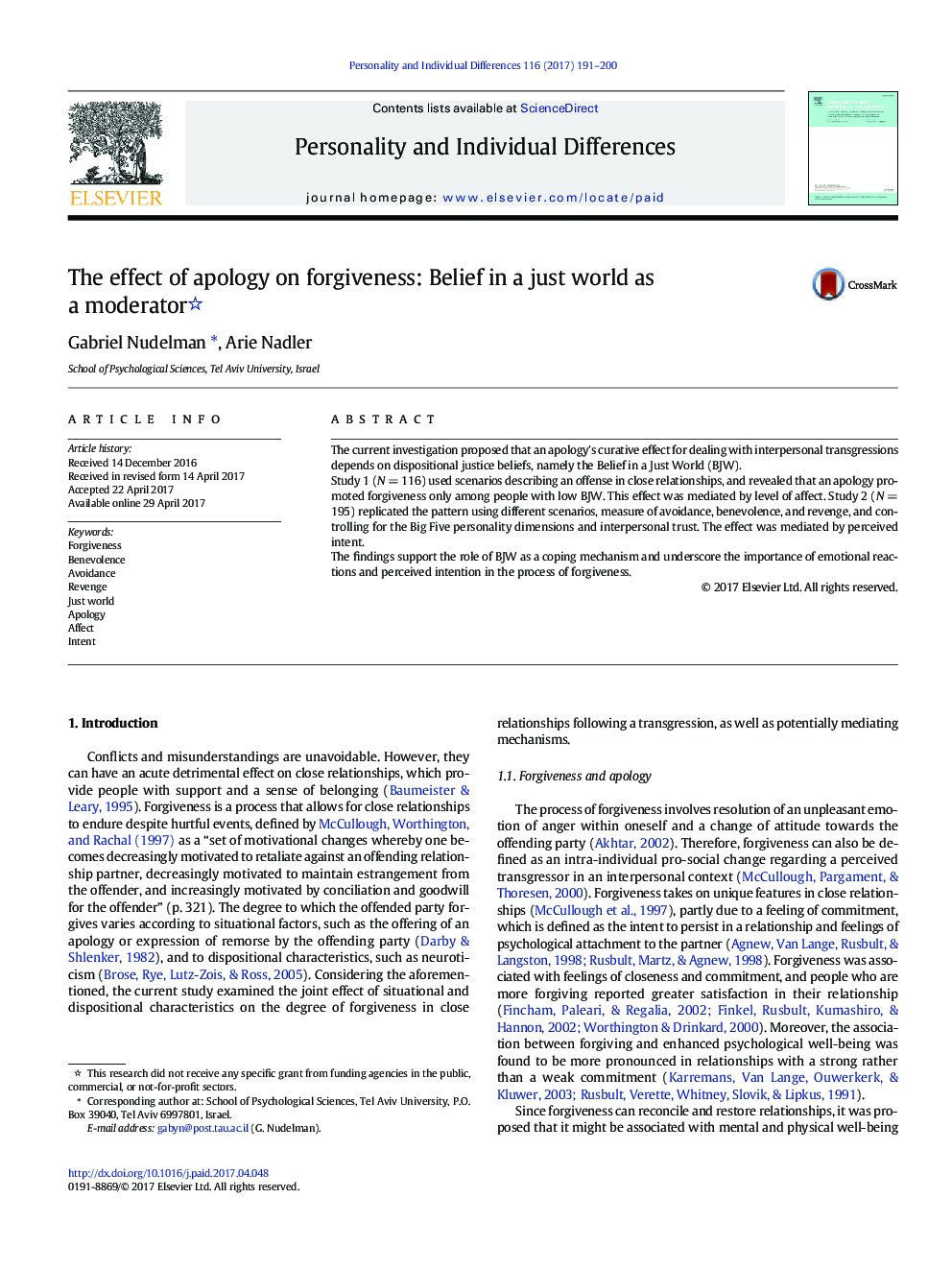| Article ID | Journal | Published Year | Pages | File Type |
|---|---|---|---|---|
| 5035603 | Personality and Individual Differences | 2017 | 10 Pages |
â¢The effect of apology on forgiveness in close relationships was examined.â¢Two studies demonstrated that the effect is moderated by the belief in a just world.â¢Apology promoted forgiveness only among people with low belief in a just world.â¢People with high belief were not affected by the existence or absence of an apology.â¢The moderation effect was mediated by affect and perceived intent.
The current investigation proposed that an apology's curative effect for dealing with interpersonal transgressions depends on dispositional justice beliefs, namely the Belief in a Just World (BJW).Study 1 (NÂ =Â 116) used scenarios describing an offense in close relationships, and revealed that an apology promoted forgiveness only among people with low BJW. This effect was mediated by level of affect. Study 2 (NÂ =Â 195) replicated the pattern using different scenarios, measure of avoidance, benevolence, and revenge, and controlling for the Big Five personality dimensions and interpersonal trust. The effect was mediated by perceived intent.The findings support the role of BJW as a coping mechanism and underscore the importance of emotional reactions and perceived intention in the process of forgiveness.
